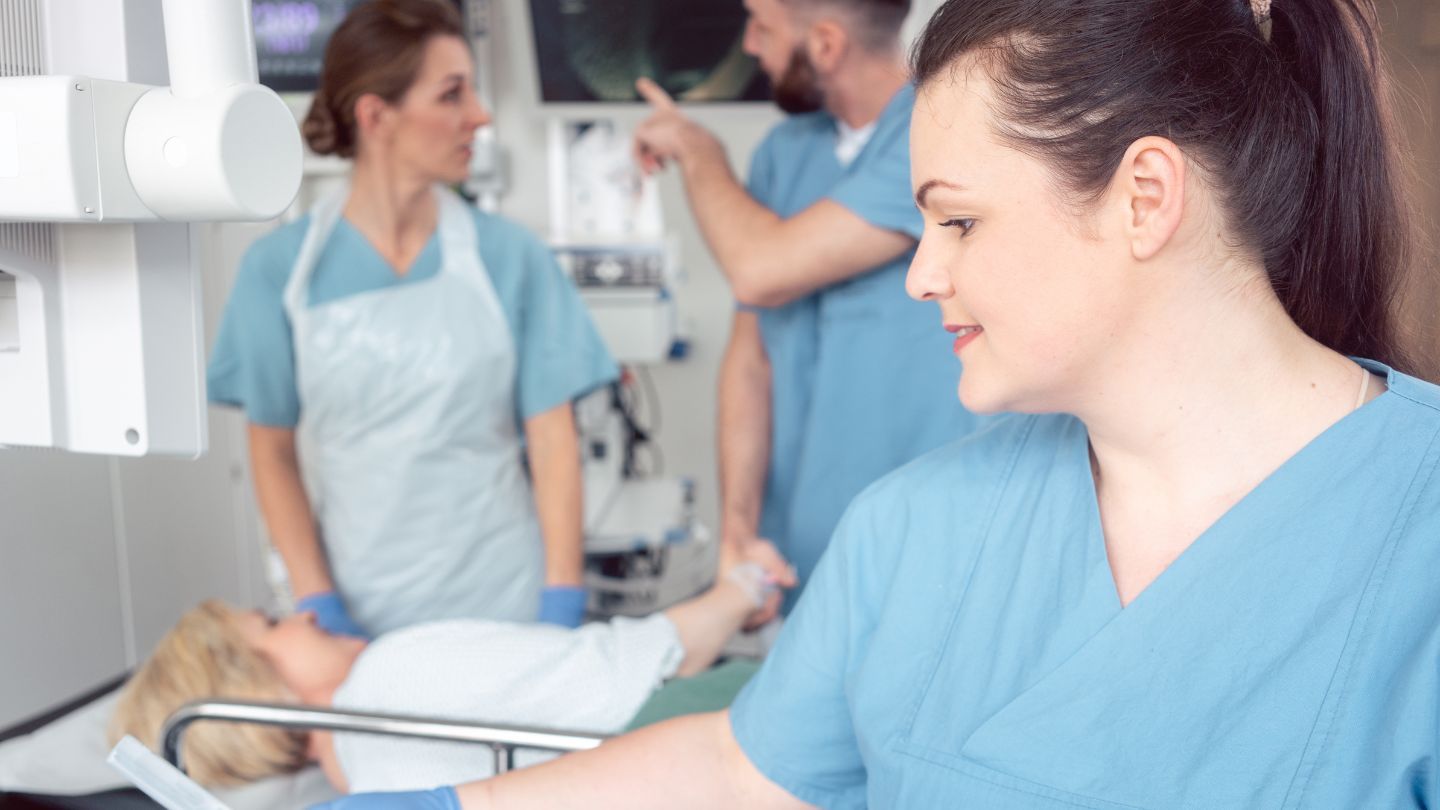
Knowing the Difference: Colonoscopy vs. Endoscopy
If you’re not a medical professional, it’s unlikely that you truly know the difference between colonoscopy and endoscopy. To help you understand the complexities of both procedures, Ascension Saint Agnes Bariatric Surgery has put together this useful guide:
Colonoscopy
If a medical professional suspects you may be suffering from colorectal cancer, they will perform a colonoscopy. When considering the core nature of colonoscopy vs endoscopy, this is essential to remember. This important procedure allows doctors to look at and capture a detailed view of your entire large intestine and rectum. Colorectal cancer always begins as precancerous polyps that can form in your large intestine and rectum, so spotting them early on, and removing them, is key to preventing the disease.
Medical professionals recommend that every individual should have a screening colonoscopy before the age of 45. After this age, your doctor will help you determine when any additional screenings may be necessary. Many doctors will provide light general anesthesia to ensure the screened patient is kept comfortable during the procedure.
Benefits:
Since polyps can be removed during the colonoscopy itself, risky polyp build-up can be dealt with swiftly. In addition to colorectal cancer, the procedure can diagnose and help treat conditions such as ulcerative colitis, Crohn’s disease, and diverticulitis. This information can help you more accurately understand how endoscopy and colonoscopy are similar but with different roles.
Endoscopy
Comparisons between endoscopy and colonoscopy can seem confusing at first but are much simpler than you might imagine. An endoscopy is considered a non-surgical procedure, and its purpose is to examine the medical health and state of your digestive tract.
Endoscopies are performed using a medical instrument known as an endoscope. These long, flexible, and thin tubes are camera-equipped to help medical professionals capture high-quality images of your rectum, stomach, throat, esophagus, and colon. If you have an endoscopy scheduled that’s concerned with your small intestine, however, doctors use pill-based wireless capsule cameras.
The number of images captured during an endoscopy can vary but can reach upward of more than fifty thousand. When considering endoscopy vs colonoscopy, it’s important to remember that endoscopies can usually be undertaken using minimal sedation.
Read more: Different Types of Endoscopy Procedures & Their Uses Explained
Benefits:
Endoscopies are typically performed as an outpatient procedure, so your doctor can quickly diagnose and treat conditions ranging from GERD to ulcers. The minimal recovery time post-procedure allows patients to walk away from the office with little to no discomfort.
Should You Schedule a Colonoscopy or Endoscopy?
Colonoscopies are a common medical assessment for everyone before the age of 45, while endoscopies are typically performed on an as-needed basis. Reach out to us to determine if you suspect that you require either of these medical procedures or an upper endoscopy in Baltimore.